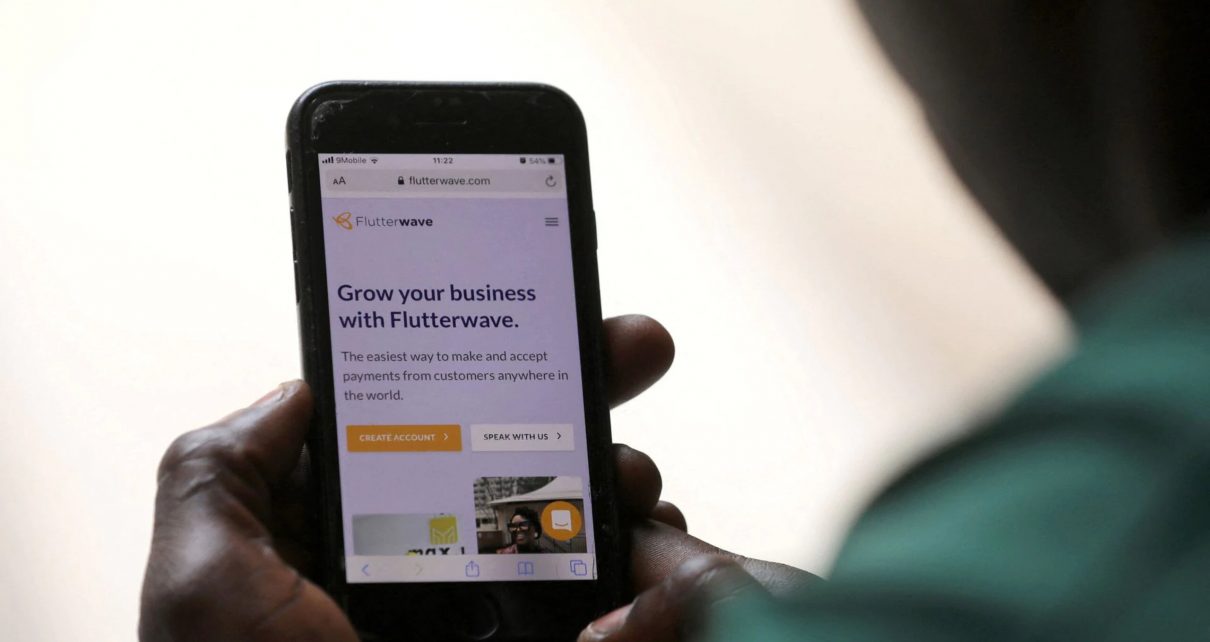A court in Kenya has frozen more than $40 million in accounts belonging to Africa-focused payments giant Flutterwave under the country’s anti-money laundering laws, court documents showed.
Founded in 2016 in Nigeria, the San Francisco-headquartered firm, specialises in individual and consumer transfers, one of several fintech firms facilitating and capitalising on Africa’s booming payments market.

Earlier this year, the firm raised $250 million, valuing the startup at more than $3 billion.
Kenya’s Assets Recovery Agency sought and was granted a High Court order to freeze several accounts with three banks belonging to Kenyan-registered Flutterwave Payment Technology Ltd.
Flutterwave confirmed to Reuters it owned the company.
It said in a separate statement that claims of financial impropriety in Kenya were “entirely false”.
The court order, which is dated July 1, stops Flutterwave from any transactions from more than a dozen accounts with three banks, which held $43 million in dollars, sterling, euro and Kenyan shillings.
“These orders shall subsist for a period of 90 days as provided in section 84 of Proceeds of Crime and Anti-Money Laundering Act,” Judge Esther Maina said in a ruling pending a full hearing and final order at a later date.
In its response, Flutterwave said its operations were regularly audited and it continuously engaged regulatory agencies to stay compliant.
In its blog, Head of Branding and Storytelling, Yewande Akomolafe-Kalu, wrote:
“Claims of financial improprieties involving the company in Kenya are entirely false, and we have the records to verify this.”
Her rebuttal said, “Through our financial institution partners, we collect and pay on behalf of merchants and corporate entities. In the process we earn our fees through a transaction charge, records of which are available and can be verified. As a business, we hold corporate funds to support our operations and provide services to all our customers.”
She continued, “By facilitating payments for the biggest organizations in the world and everyday businesses, we process significantly large volumes of money and contribute to growing the economy in Kenya, and the rest of Africa.”
The company maintained that they were “a financial technology company that maintains the highest regulatory standards in our operations.”
“Our Anti-money laundering (AML) practices and operations are regularly audited by one of the big 4 firms. We remain proactive in our engagements with regulatory bodies to continue to stay compliant,” Yewande said.
“Flutterwave has a responsibility to ensure the integrity of the ecosystem, and we pledge our commitment to continue to work with all stakeholders to uphold this. We are working to figure out the motive behind the publication, and have the records straightened,” she concluded.
Flutterwave had been mired in controversy recently when one of its staff while claiming bullying by the chief executive had accused the company of fraud.
One of its former staff, Clara Wanjiku Odero, a former employee of African payments giant and unicorn Flutterwave, had accused the company’s chief executive officer Olugbenga ‘GB’ Agboola of bullying and harassment.
In a Medium post and series of tweets that came after, Odero had claimed that a series of undescribed events led her to quit her job as Head of Implementation (Rest of Africa) in 2018 and when the time came for her to be settled, she claimed the company refused to do so.
Odero’s post also revealed how she got “introduced to a bank in Nigeria for a role which GB then sabotaged by saying I was a bad worker, a crime in California.”
According to her, what finally got her very upset was when Flutterwave, “in an attempt to keep doing business in Kenya with M-Pesa, had kept my number as the contact person on the Mpesa pay bill.”
In the piece published two years ago, Odero claimed her number was used as the contact person in a fraud that involved Flutterwave allegedly processing payments for non-existent sex parties in Thika, Kenya where participants were extorted up to Sh1,500.
Odero then sued Flutterwave for damages and won a settlement, she revealed.
However, she appealed the case after deeming the payment inadequate to compensate for all the trouble caused her.



